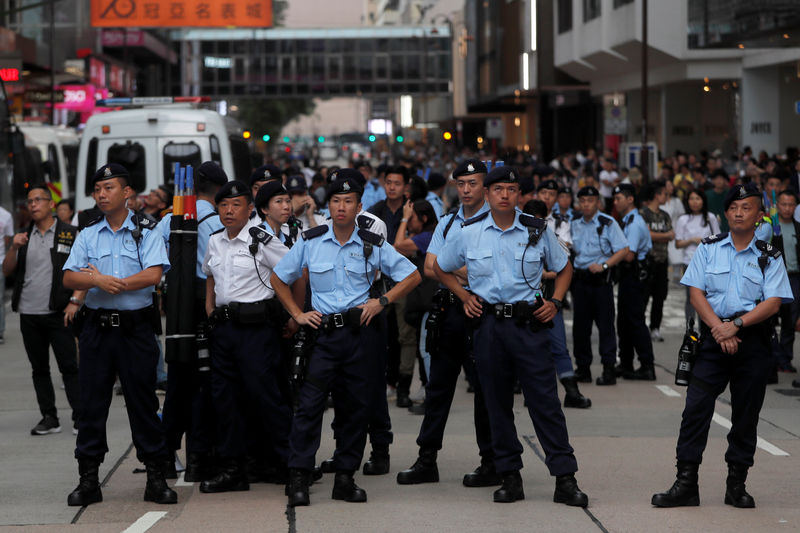HONG KONG (Reuters) - Hong Kong tourism numbers are falling and hotel occupancy rates are slumping after the Chinese-ruled city was rocked by sometimes violent political protests over the last month, adding pressure on its already struggling economy.
The declines reported on Wednesday came a day after Hong Kong retailers warned that July and August sales could drop by double-digits from a year earlier as tourists put off their visits.
Like many export-reliant Asian economies, Hong Kong has been hit hard by the year-long U.S.-China trade war, and grew at its slowest pace in nearly 10 years in the first quarter.
Commerce and economic development secretary Edward Yau said on Wednesday he saw "negative signals" from the economy beyond known declines in trade, retail and cargo freight posted in the first five to six months.
"Three weeks ago I met with the tourism sector and they expected a 5 to 10% impact, but now the hotel sector is worried the impact would be larger," Yau told reporters.
The government will expand funding to better help smaller companies, he added.
The Hong Kong Federation of Trade Unions said on Wednesday the number of tour groups from mainland China has declined to 5,641 in June from a monthly average of 7,800 in the beginning of the year.
Hotel occupancy rates fell as much as 20% in June from a year earlier, and are expected to drop 40% in July on-year, it said. Hong Kong is one of Asia's most popular tourist destinations and a global financial hub.
Millions have taken to the streets over the past month to protest a bill that would allow people to be sent to mainland China for trial in courts controlled by the Communist Party.
Some of the demonstrations have turned violent, with clashes between police and protesters, and the city is bracing for more unrest in coming weeks.
Government officials have said the extradition bill is effectively dead but activists say they want it formally withdrawn.
On Monday, Financial Secretary Paul Chan said economic growth in the second quarter will be slower than the first, hurt by trade tensions.
He said he hasn't seen obvious capital outflows triggered by the protests, but the violent clashes would hurt Hong Kong's international image.
